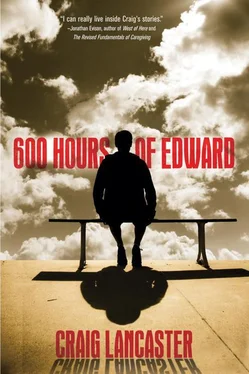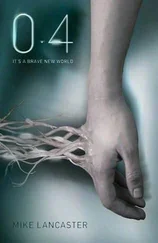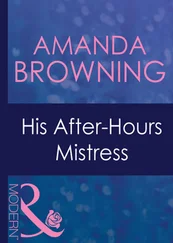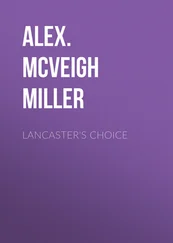Ever since the Albertsons on Grand put in self-checkout stands, I have been a happier shopper. Before, I sometimes had to wait behind several people in line, and that threatened to affect the projects I had at home and, conceivably, although it never happened, could have caused me to miss the 10:00 p.m. start of my Dragnet episode. I’m no longer permitted to go to the Albertsons on Sixth Street W. and Central Avenue, which is actually closer to the house that my father bought for me.
It was a dumb situation: I was in the checkout line behind an old woman, and she and the checker were talking a lot, and the line was moving slowly. I asked if they could quit talking so I could leave faster, and the checker shot me a mean glance and then kept talking. So then I said, “Please, hurry up because I have to leave soon.” The man behind me didn’t like this and pushed me, and I ran into the old lady and knocked her down.
The store manager called the police, and my father had to come to the store and tell the police that he would make sure it never happened again, even though I told them that it was not my fault and that I wouldn’t have run into the woman if I had not been pushed. Nobody believed me.
You can probably guess that the whole thing ended up involving a letter from my father’s lawyer, who ordered me not to go back to that Albertsons ever again.
But now that the Albertsons on Grand Avenue and Thirteenth Street W. has self-checkout stands, I think it’s a moot point. I don’t have to talk to anyone to pay for my groceries now.
– • –
After I get home and unload and put away the groceries, I notice that the mailman has already been to the house. Ideally, I would like to add to my data sheets the time that the mail is delivered each day, but my projects and appointments sometimes take me away from the house, and so I don’t always see the mailman when he comes by. I might be able to rig up a video camera that would record his visit even when I’m not home, but Dr. Buckley says that is the sort of impulse that I need to work on controlling.
I don’t receive much mail. My bills go directly to my father, and he pays them. My name is not on this house or on my car, and so even junk mail is scarce. That’s how the junk mail people find out who you are and where you live. They go snooping around in public records, like home and car titles, and then they write to you. Also, if you apply for credit cards, you are sure to get all sorts of junk mail. The only credit card I have is for my expenses, and the bill goes to my father. If this card has resulted in junk mail, I can only assume that my father is receiving it. I don’t like to assume. I prefer facts.
Today, there is one letter in the mailbox. It is from my father, in an envelope from his office. I am relieved that I am not hearing from my father’s lawyer, but hearing from my father isn’t necessarily better. I will have to open the letter to find out.
Edward:
I have received your credit card bill from last month. Everything looks to be in order, but I am confused by one charge: $49.95 for eHarmony.
Call me so we can address this.
Ted Stanton
I had a suspicion that this was going to happen. Now it is a fact.
I go inside the house, pick up the phone, and dial the number at my father’s office.
“Yellowstone County Commissioners.”
“It’s Edward Stanton. Let me talk to my father.”
“One moment, please.”
I listen to the orchestral version of a pop song—Muzak, it is called. Paul McCartney’s “My Love.”
“Ted Stanton.”
“Father.”
“Edward, thank you for calling. How are you?”
“I am fine, Father.”
“Can you tell me about this forty-nine dollars and ninety-five cents?”
“I signed up for eHarmony.”
“What is that?”
“It’s an online dating service.”
“You’re dating?”
“I am looking at online personal advertisements.”
“Does Dr. Buckley know about this?”
“My treatment with Dr. Buckley is between me and Dr. Buckley.”
“Online dating, eh?”
“Yes.”
My father’s voice softens. “Well. This could be interesting, Edward. This could be something good for you.”
“You’re going to pay the bill?”
“Sure. Yes. Why not?”
“It’s the only one you will get. I canceled the membership.”
“Oh.”
“Good-bye, Father.”
– • –
I guess I should tell you about eHarmony. I spend a lot of time on the computer looking at websites on the Internet. I used to keep track of how many hours and minutes I spent on the Internet, but I don’t do that anymore. It was easy when you had to pay for the time on the Internet, because you could just write down the time when you got the bill. Now the Internet is hooked up through my cable television, and I can spend as much time as I want on it for one price, which my father pays. It bothers me sometimes that I don’t keep track of the time I spend on the Internet, but I’ve learned to “let that go,” as Dr. Buckley says. Dr. Buckley was very happy for me when I stopped tracking my Internet time. I’m not sure why she cared.
Lately, I have been spending most of my online time at Internet dating sites. On the television commercials, everyone who is finding dates online seems so happy, and all of them have found a “soul mate,” whatever that is. I doubt that they have any scientific proof that they have found their soul mate—for all they know, someone even more special is out there dating someone else—but I cannot argue with how happy they all are. I am envious.
I have not gone on an Internet date. I think I would like to go on an Internet date, but so far I haven’t met anyone who keeps track of weather data, and I think it is important that whomever I date on the Internet have something in common with me.
I have not told Dr. Buckley about the Internet dating yet, as there is nothing to tell. I wouldn’t have told my father, either, but he got the bill and asked me about it, so I had no choice.
I now use Montana Personal Connect. I tried eHarmony, because I liked the white hair and glasses of that guy on the commercials, and his manner was gentle, but eHarmony told me that its system and its twenty-nine levels of compatibility couldn’t find anyone for me.
That hurt my feelings.
– • –
At 10:00 p.m. sharp, I watch episode number ninety-two of Dragnet , which originally aired on March 5, 1970.
The episode, the twentieth of the fourth and final season, is called “Missing Persons: The Body,” and it is one of my favorites.
In this episode, Sergeant Joe Friday and Officer Bill Gannon have only two clues to identify a woman who was found dead under the Venice Pier in Los Angeles: a wadded piece of paper and a ring. But because of their doggedness, they eventually find out who she was and crack the case. Sergeant Joe Friday and Officer Bill Gannon are good cops.
When I started to learn my way around the Internet, I found that the actors who appeared on Dragnet were, in many cases, not difficult to track down. Most of them were not big stars, and some even have listed phone numbers and addresses. That’s not the case with the main actors in this episode, Anthony Eisley, Virginia Gregg, and Luana Patten; they are all dead. A lot of other people who were in the ensemble are dead, too, but some are alive. I exchanged some mail with an actor named Clark Howat, who appeared in twenty-one episodes of Dragnet . He was very nice. He told me how the star and creator of the show, Jack Webb, who plays Sergeant Joe Friday, didn’t want his actors to act because the series had such a small budget and could not afford more than one take on each scene. Instead, Jack Webb had them read their lines off teleprompters. Mr. Howat said it was hard to get used to, as actors’ training is to be more natural. But, he said, Jack Webb’s methods worked. I wrote back to Mr. Howat five or six times, and even invited him to have a cup of coffee with me if he ever came through Billings, but he never wrote back. It’s just as well. I don’t like coffee, and I think it would be difficult to sit at a table with a stranger and talk, even if he was in Dragnet twenty-one times.
Читать дальше












